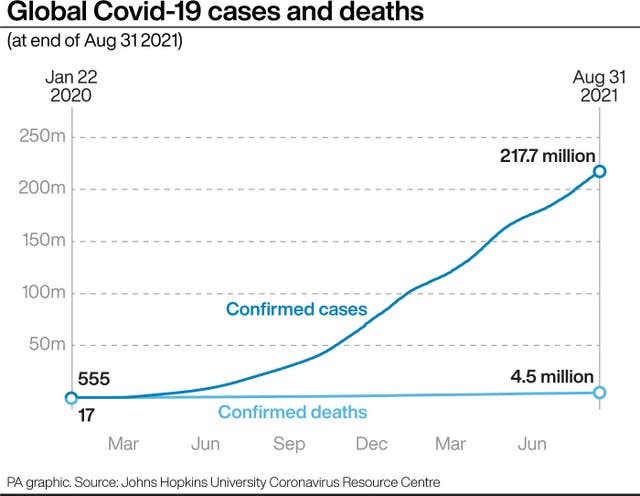Scientists seek broad sample of the population for long Covid genetics study
Researchers hope to explore the relationship between genetics and an individual’s reaction to the virus.

Scientists are calling for 3,000 long Covid sufferers of all ages, genders and ethnicities to help them establish a possible genetic link to the virus.
The researchers hope to explore the relationship between genetics and an individual’s reaction to the virus with a more diverse sample of genetic data.
The study will aim to be representative of the UK population. The scientists are hoping to recruit people from a variety of backgrounds including Asian (Indian, Pakistani, Bangladeshi, Chinese, other), Black (African, Caribbean, other), and Arab, as well as ethnically mixed individuals.
Researchers hope such age, gender and ethnic diversity will better reflect the population, as many studies are based on Eurocentric genetic data.
UK adults suffering from long Covid symptoms are invited anonymously to share their DNA data with a world-wide consortium of coronavirus researchers, using at-home testing kits.
Led by genetic research platform Sano Genetics, and supported by Government funding body Innovate UK, the research aims to aid development of treatments and identification of vulnerable groups.
Scientists also hope the data will help them identify a possible link between genetic make-up and response to Covid-19.
Dr David Strain runs the Long Covid Clinic at Exeter University Medical School and is the principal investigator for the study. He said: “As this disease affects people indiscriminately, from all walks of life, it will be important that we get as representative a population as possible.
“All ages, genders and ethnicities can help us understand and thus fight this disease.
“The importance of understanding why some people are left with lasting symptoms often after only minor original infections cannot be under-estimated.

“Now we have a greater knowledge of what our genes actually do, if we can identify those that predispose an individual to developing long Covid, it could open the doors to potential treatment.”
Symptoms of the condition may include fatigue, shortness of breath, chest pain or tightness, brain fog, insomnia, pins and needles, joint pain, depression and anxiety, diarrhoea, stomach aches, tinnitus and rashes.
Anyone who has had Covid-related symptoms for longer than three weeks can sign up online at https://sanogenetics.com/study/gold/ and receive a free at-home DNA testing kit.
Dr Patrick Short, chief executive and co-founder of Sano Genetics, said: “Understanding how our genetics influence our response to Covid-19 is key to better protecting vulnerable people, developing effective treatments, and helping the world safely open back up.
“There has also historically been a huge bias in genetics studies toward analysing data primarily from people of white European backgrounds, meaning new discoveries do not always apply to everyone, and we want to make sure this study does not make the same mistakes.”





